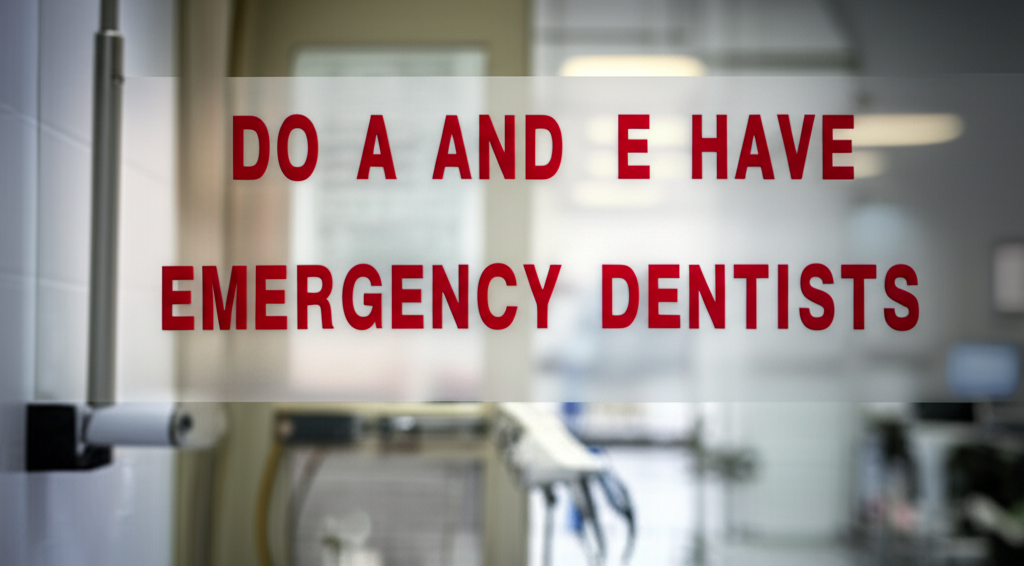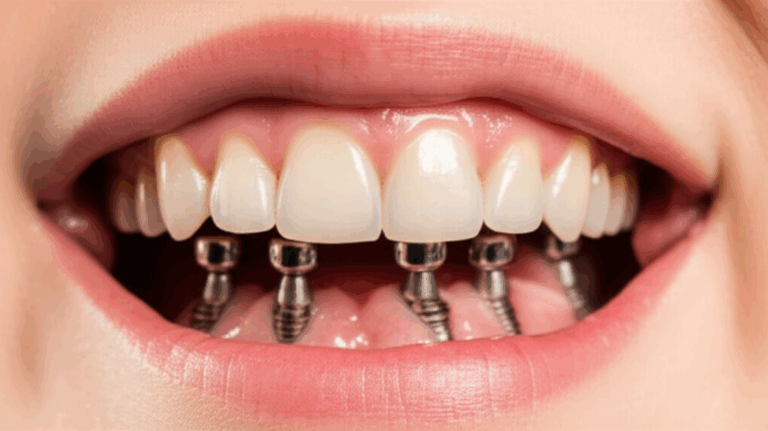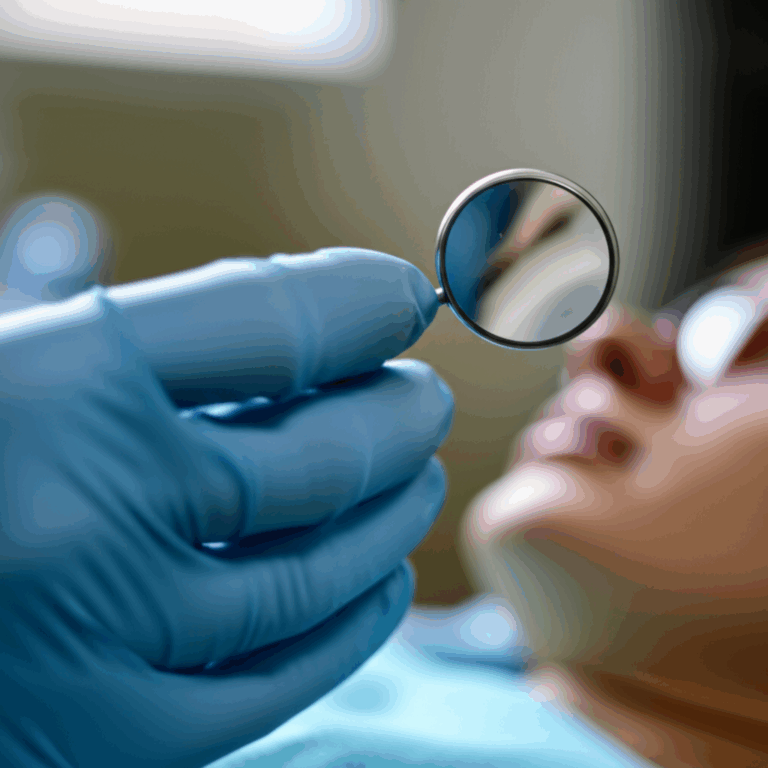
Do A&E Departments Have Emergency Dentists? Your Complete Guide to Urgent Dental Care
Ever had that really bad tooth pain late at night or on the weekend, and wondered, “Should I go to A&E for this?” If you’ve got a dental emergency, you’re not alone. Lots of people worry about where to go when they suddenly have pain, swelling, or a tooth injury at the worst time.
Let’s clear up any confusion, help you stress less, and show you where to get the help you need—without wasting time or risking your health.
In This Article
- What Is A&E and When Should You Go?
- The Straight Answer: Does A&E Have Emergency Dentists?
- What Can A&E Actually Do for Dental Emergencies?
- What A&E Cannot Treat (And Why)
- When Not to Visit A&E for Dental Problems
- Your Real Options: Where to Go for Urgent Dental Care
- Step-by-Step: Accessing Emergency Dental Services
- Costs of Emergency Dental Treatment
- The Bigger Picture: Data and Insights on Dental Emergencies
- How to Prevent Dental Emergencies in the Future
- Key Takeaways and Your Next Steps
What Is A&E and When Should You Go?
Let’s talk about what A&E (Accident & Emergency, or the ER in some countries) is for.
A&E is for really serious, life-threatening problems: like bad chest pain, trouble breathing, or big injuries.
Some people think you can get any emergency help at A&E, like for tooth pain—but that’s not right.
If you’re wondering if you can just walk in and see a dentist at A&E, that’s a good question. You deserve a straight, honest answer.
The Straight Answer: Does A&E Have Emergency Dentists?
Let’s get to the point. No, A&E departments do not have emergency dentists on their team. You won’t find a dental chair or the special tools you see at your normal dentist.
That might surprise you, since tooth pain can feel just as bad as any other emergency. But the truth is, A&E is not made for dental work. They focus on saving lives, not fixing teeth.
But don’t worry—you still have options. Let’s talk about what A&E can do, when you should go, and how to really get your dental problem sorted.
What Can A&E Actually Do for Dental Emergencies?
While A&E can’t fix your tooth, they won’t leave you on your own if you have a real health problem. Here’s what they can do:
The Big Danger Signs: When You Should Go to A&E
A&E staff are medical doctors and nurses, not dentists, but they step in for serious, life-threatening problems. Go straight to A&E if you have:
- Bleeding in your mouth that won’t stop—for example, after an injury or a recent tooth pulled that won’t stop even if you press on it.
- Bad swelling in your face, especially if your eye or throat is getting bigger. This could mean an infection is spreading and could block your airway.
- Trouble breathing or swallowing because of dental pain or swelling.
- A hard hit to your face—like a broken jaw, broken face bones, or a big cut from an accident.
- Signs you have a blood infection (sepsis) from a dental problem: high fever, chills, feel confused, heart beating fast, or just feel really unwell.
- Pain so bad you can’t control it with normal painkillers, especially if it’s making you faint or throw up.
They’ll try to help you feel better—give pain meds, control infection and bleeding, and protect your airway. Sometimes, they’ll send you to a special team like Oral & Maxillofacial Surgery (OMFS) if it’s a really big emergency.
Example:
If you knock out a tooth during sport and can’t stop bleeding, or if your face swells up so much you can hardly breathe or see, that’s when A&E is the right place. These are real emergencies that can be life-threatening.
What A&E Cannot Treat (And Why)
Now for the truth. What about just a toothache, chipped tooth, lost filling, or a basic abscess? These are super painful, but A&E can’t do much.
A&E Cannot Do This:
- Pull out teeth (even if you’re in a lot of pain)—no dental drills, forceps, or the numbing stuff dentists use.
- Do root canals, fillings, crowns, or fix dentures.
- Treat gum disease, clean your teeth, or fix braces.
- Put back crowns or veneers.
- Give long-term fixes for pain or infection.
Why not? A&E doesn’t have dentists or dental nurses. They’re there to help with your main health, not your mouth.
They don’t have the right tools or the know-how to treat your teeth.
They’ll Give Short-Term Help
- Pain meds—like paracetamol or ibuprofen, or sometimes codeine.
- Antibiotics if it looks like you have an infection that’s spreading.
- Maybe a referral (not an appointment) to a dental hospital or OMFS unit, but only if it’s serious.
But after this, they’ll tell you to see a dentist—the only person who can really help with your tooth problem.
When Not to Visit A&E for Dental Problems
You might want to rush to A&E when you can’t handle your dental pain, especially if you don’t know what else to do. But here are some reasons you should skip A&E.
Dental Problems Not Meant for A&E
- Toothache: Even if it’s really bad, unless you also have fever, swelling, or can’t breathe, call your dentist instead.
- Dental abscess: Hurts a lot but isn’t spreading. Only a dentist can drain or treat this.
- Lost filling, crown, or veneer: Annoying, but not an emergency for A&E.
- Cracked or broken teeth—unless you can’t stop the bleeding or your jaw is broken too.
- Wisdom tooth pain: Unless it’s making your face swell or you can’t swallow, go to a dentist.
- Broken dentures or loose braces.
- Sore gums, bleeding after brushing, or mild mouth problems.
- Dental pain just because it’s after hours. There’s emergency dental help for that (we’ll explain next).
Going to A&E for these makes it harder for emergency doctors to help others, and you’ll probably just get painkillers and told to see a dentist.
Your Real Options: Where to Go for Urgent Dental Care
So if A&E isn’t the answer, what should you do if you’re in pain?
1. Call Your Normal Dentist (First Thing)
A lot of dentists keep time for emergencies each day. Even if they’re closed, their answerphone often has info about after-hours or weekend dental emergencies in your area.
2. NHS 111 (UK Only)
If you can’t reach your dentist or it’s after hours, call NHS 111. Trained people there can:
- Work out how serious your problem is.
- Book you at the closest Urgent Dental Care (UDC) centre—these clinics have real dentists.
- Give first aid tips and tell you what to do.
3. Private Emergency Dental Clinics
If you can’t wait, many private dentists offer same-day or evening appointments for emergencies (these cost more, but you get help fast). Look up “emergency dentist near me” or check local ads.
4. Dental Hospitals
Some dental hospitals have emergency or walk-in clinics for tough cases or bad mouth injuries—usually you need a referral, or NHS 111 will direct you here in a real emergency.
5. Other Health Services: GP or Pharmacist
Doctors and pharmacists can give advice and painkillers, but they can’t do any dental work—GPs will usually send you to a dentist.
Remember: If you’re not sure, call your dentist or NHS 111 first. They’ll get you the right help.
Step-by-Step: Accessing Emergency Dental Services
It’s hard to know what to do when you’re in pain. Here’s a simple plan to help you—call it your “dental emergency guide.”
Step 1: Check How Bad It Is
Ask yourself:
- Is your mouth bleeding but you can’t stop it?
- Are you having trouble breathing, swallowing, or opening your mouth because of swelling? Is it spreading to your eye?
- Are you feeling really bad—confused, worn out, high fever?
If YES, go right to A&E.
If NO—go to step 2.
Step 2: Call Your Dentist
During normal hours, ring them first. They can usually see you that day, or tell you where to go.
Step 3: Out-of-Hours? Call NHS 111
They’ll give advice, maybe emergency triage, and book you at an urgent care dental center if needed.
Step 4: Can’t Wait? Try Private Emergency Services
If you can’t wait and have the money, private emergency dentists can usually see you fast.
Step 5: Go Back for Proper Care
Only a dentist can really fix dental problems. Follow up with your dentist after any emergency visit to finish the job.
Costs of Emergency Dental Treatment: What Should You Expect?
Money worries can make a dental emergency worse. Here’s what to expect:
In the UK (NHS)
- NHS Urgent Dental Care: An emergency visit (where the dentist checks, gives pain relief, and stabilizes you) is usually Band 1 or Band 2 charges, depending on what’s done. Some people (kids, pregnant women, some on benefits) may not have to pay.
- A&E visits: Free to go (but only for medical help, not dental fixes).
Private Dental Services
- Emergency visit: Usually £50 to £150 just for the check-up, with extra costs for any work.
- After-hours and weekends: Prices are higher, especially in cities.
Why Not to Go to A&E for Dental
Around £50 million a year is spent on A&E dental visits that could be treated by dentists. If you use the right service, you help others get emergency help sooner, and you’ll get real dental care faster.
The Bigger Picture: Data and Insights on Dental Emergencies
How common is this, and why do so many end up at A&E for dental problems?
- Over 600,000 visits to A&E each year for dental issues: Most of these could have been avoided; pain and abscess are the top reasons.
- Up to 80% are ‘inappropriate’: meaning it could be treated somewhere else.
- The average wait is long, and people usually just get pain meds and a paper with advice.
- During COVID-19: When special urgent dental services opened, A&E visits for dental reasons dropped.
What’s the point?
Most people just don’t know where to go, especially after hours. The answer is:
- Teach more people about this (like you’re reading now).
- Make urgent dental care easier to find—like calling NHS 111.
- Go for regular dental checks and keep your mouth clean to stop emergencies in the first place.
How to Prevent Dental Emergencies in the Future
Let’s be honest—not everything can be stopped. Accidents just happen. But most dental problems don’t come out of nowhere. Here’s what you can do:
- Go to your dentist often. Check-ups can catch small problems before they’re bad.
- Brush and floss twice a day, every day—a clean mouth is a healthy mouth.
- Wear a mouthguard during sports: Mouthguards can be made by your dentist or at a china dental lab. They protect your teeth from injury!
- Don’t chew ice, pens, or other hard stuff that could break your teeth.
- Get broken fillings or crowns fixed quickly. Waiting can make things worse.
- Don’t use your teeth as tools. Biting open bottles or tough packages can send you straight to the dentist.
- Eat a healthy diet. Cut back on sugary snacks and drinks.
- If you grind your teeth at night, ask your dentist about a night guard—this can stop cracks and wear (like from a night guard dental lab).
Key Takeaways and Your Next Steps
Let’s sum up everything in a few clear points:
- A&E is only for true emergencies, like heavy bleeding, blocked airway, big injuries to your face, or really bad infection.
- A&E can’t fix your teeth, only dentists have the tools and skills to do real dental treatment.
- Toothaches, abscesses (that aren’t spreading), lost fillings, loose crowns—all need a dentist, not a hospital visit.
- If you need dental help quick:
- Call your dentist first, during usual hours.
- Use NHS 111 after hours or if you don’t have a dentist—they can help you find urgent dental care.
- Try private clinics if you need super quick care and don’t mind paying.
- Prevention is best. Brush, floss, go for check-ups, and use a mouthguard for sports.
- If you aren’t sure, ask for help—better to be safe.
- For new dental options, from crowns to high-tech care, dental labs like this digital dental lab work with your dentist for great results.
Remember: You’re Not Alone
Dental pain feels scary and lonely sometimes. But with this info, you can make a better, less stressful choice—even in the middle of the night.
If you have a dental problem now, pause, breathe, check how bad it is, and take the next right step:
- Medical emergency? Go to A&E.
- Dental problem that’s urgent (but not life-threatening)? Find a dentist or call NHS 111.
- Not sure? Ask for help—you have choices, and people are happy to support you.
Still worried or just want to stay on top of your teeth? Book a check-up and look at your home care. Small changes now can save a lot of pain later.
This article was checked by a dentist. For advice that fits you personally, speak with your dentist or local urgent care.
(This article is for info only and doesn’t replace real medical or dental advice. If you’re not sure, get professional help straight away.)








